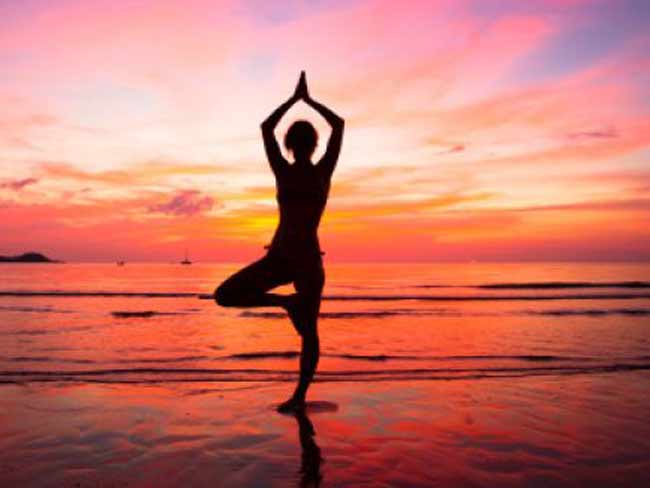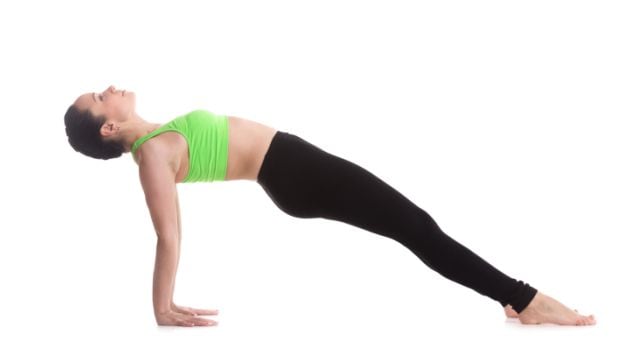
Yoga is a way of living. It is not just an exercise regime that will immediately make you feel the difference physically; rather it helps you feel positive about yourself in entirety. It has a rejuvenating and healing effect on your body, mind as well as the soul.
Yoga is an age-old practice which has been picked up as one of the most raging fitness trends of the century. Unfortunately, despite different parts of the world embracing and reaping its benefits, there exist myriad myths clouding the concept of yoga. Lack of proper knowledge has often lead to many people developing wrong notions about the practice due to which many stay away from it.
(Yoga for Runners: What are the Best Stretches?)
Yoga is a holistic experience; one will not understand its mechanism, its relationship with the human body and the nuances of its effects on our mind and soul, until one starts practicing it. For the longest time I was under the notion that yoga is only for the fit who seek to improve their flexibility. I could never understand how it could be as beneficial as other high intensity physical regime. Like many others, I blindly believed some of the myths associated with it and refused to embrace yoga and make it a significant part of my everyday life.

(Power Yoga: Your Guide to Physical Vigour)
So, before you catch hold of your yoga guide for dummies, try and delve deeper into the subject. You will be surprised when you learn the numerous ways it can contribute to your body’s well-being – right from dealing with stress to tackling weight gain. Now, let’s move on to busting some yoga myths!
(Kundalini Yoga: An Exercise that Boosts Immunity, Helps Cut Belly Fat)
I can’t even touch my toe, yoga is for the flexible and agile, not me: Whoever put that notion in your head, ask that person to go take a walk while you prepare for your beginner’s class. Yoga is a combination of strength, flexibility and balance. You are required to open up your muscles, push yourself further to build on your flexibility, use your strength to hold the posture and balance it. Yoga helps in fortifying all these areas. Slowly, gradually and eventually you will feel more flexible. Not everybody is flexible to begin with, but we all have key areas with the help of which we certainly can move forward and achieve greater and better results.
(Stress Buster: Yoga is What You Need for a Healthy Mind)
Yoga can be tailor-made and customised as per a person’s requirement and physical capacity. There are asanas for everyone. From yoga for kids, older people, beginners to yoga postures for pregnant women, its practice benefits one and all.
(Yoga may Help Women Ease PTSD Symptoms)
Yoga is great for flexibility but not for weight loss: Really? Have you ever considered talking to an expert before passing your judgment? It should be kept in mind that yoga is a slow and peaceful practice of getting your body, mind and soul in harmony. It aims at working on multiple areas including spiritual, physical and mental. Different asanaschallenge and gruel your body and their repetitive practice slowly and eventual sculpts your body to perfection.

(Yoga Boosts Brain Power in Older Adults)
According to a yoga and fitness expert Seema Sondhi, “Yoga involves twisting the body, forward and backward bends, inversions and other poses that help in opening up the otherwise rusted muscles and thereby facilitate weight loss.”
Not to mention the varied types of yoga that one can explore for greater efficiency and better results. Want to pump up the heat? Go for hatha, ashtanga, power or hot yoga and feel the difference.
(Yoga and weight loss: 6 ways to get back in shape)
Yoga is bad for injuries or chronic body aches: According to the U.S National Centre for Complementary and Integrative Health, “Recent studies in people with chronic low-back pain suggest that a carefully adapted set of yoga poses may help reduce pain and improve various functions (the ability to walk and move).
Studies also suggest that practicing yoga (as well as other forms of regular exercise) might have other health benefits such as reducing heart rate and blood pressure, and may also help relieve anxiety and depression. Conclusions from another 2011 study of 313 adults with chronic or recurring low-back pain suggested that 12 weekly yoga classes resulted in better function than usual medical care.” Although, there are forms of yoga which involve going into extreme postures that need supervision, without which they may cause fatal injuries.

(The Best Yoga Exercises for Pregnant Women)
You won’t benefit from shorter sessions: World Health Organisation recommends 150 minutes of physical activity in a week for adults ageing between 18-64 years. It can be a combination of high and moderate intensity exercises or 30 minutes of moderate-intensity activity 5 times a week. If you don’t have an hour or so at a stretch to devote for the practice, span out your sessions into smaller classes throughout the week.
(Five Easy Yoga Poses For Common Health Problems)
Every single session alters your body in a good way, be it a grueling hour-long class or a shorter and peaceful 20 minute session. Even ten minutes of Surya Namaskar every morning will show you great results. The idea is to not let go of the consistency and regularity and aim at getting better with every passing day. Just for your information, a team of researchers found that just 20 minutes of Hatha yoga can significantly improve brain functions and memory.

(The Fat Yoga: All About the Heavy Side)
Yoga is an early morning thing: If you feel that yoga is best practiced – and should only be practiced – early morning or in the evening then let me tell you, you can pull out mats right now, wherever you are and break into your posture right away! Yoga is about discipline. Disciplining your body and bringing it in sync with your mind and soul. It has nothing to do with restricting your body or limiting yourself to a routine.
(The Ultimate Full Body Workout: How to Do Surya Namaskar)
Mornings are usually preferred to undertake any kind of physical activity, but obviously, it is not a compulsion. According to Yog Guru Shree Sadhguru, Jaggi Vasudev, “Yoga is not something that you do morning-evening. It is a certain way of being. One must become yoga. If it’s morning-evening yoga, the rest of the time entanglement – this is not yoga, this is only yoga practice.”
[“source-food.ndtv”]